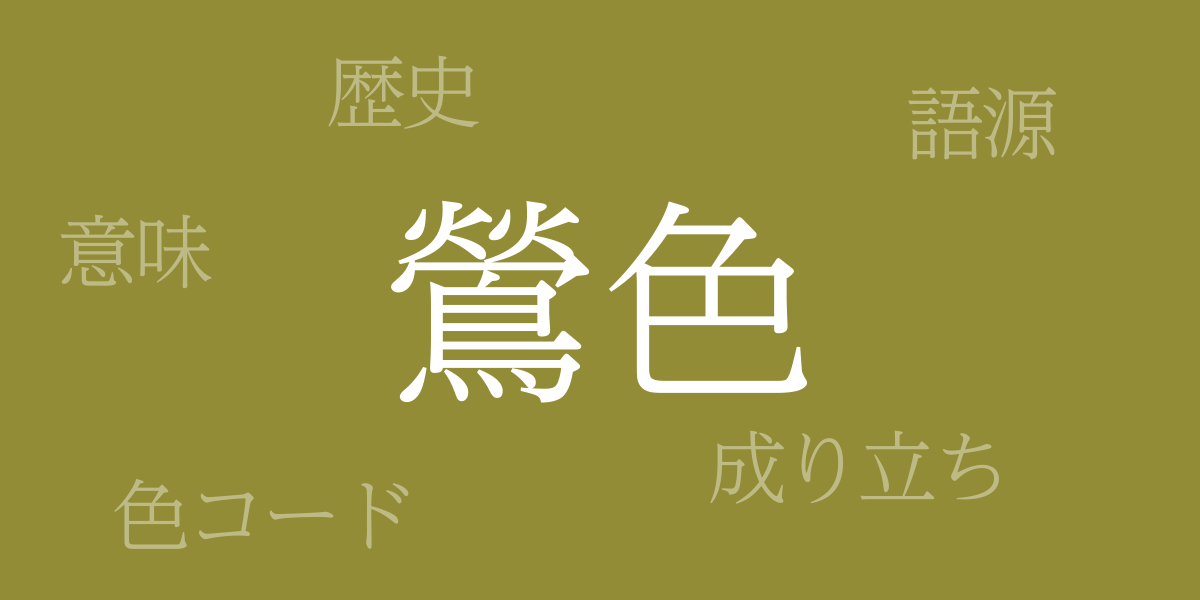Color is a powerful tool for conveying emotions and impressions. Among the traditional Japanese colors, ‘Uguisu-iro (鶯色(うぐいすいろ)),’ which symbolizes the beauty of nature, has a rich history deeply rooted in Japanese culture. This article delves into the allure of Uguisu-iro, exploring how this unique shade became a part of Japan’s identity, from its origins to modern-day applications.
About Uguisu-iro (鶯色(うぐいすいろ))
Uguisu-iro (鶯色(うぐいすいろ)), named after the color of the Japanese bush warbler’s plumage that heralds spring, is a distinctive warm yellow-green. It reflects the fresh greenery of nature, yet with a brightness and vitality. In a culture that cherishes the subtle changes of seasons, Uguisu-iro is particularly valued during spring, used widely in clothing, accessories, and interior decor.
History of Uguisu-iro
Uguisu-iro dates back to the Heian period and was originally favored by nobility for their garments. Over time, it spread among the common people, finding expression in textiles and Japanese paper (washi). As a color that aligns with Japan’s view of nature, Uguisu-iro frequently appears in literature and art, deeply permeating Japanese color perception.
Color Code of Uguisu-iro
In modern design and web production, reproducing Uguisu-iro accurately is crucial. Below are the color codes for Uguisu-iro:
- HEX: #928C36
- RGB: R:146 G:140 B:54
- CMYK: C:52 M:43 Y:94 K:0
Western Name for Uguisu-iro
In English, Uguisu-iro is sometimes called ‘Olive Drab.’ However, Olive Drab includes various shades and does not exactly match Uguisu-iro. Nonetheless, it’s an appropriate name as it evokes the natural and tranquil impression of Uguisu-iro, often used in military attire.
Summary on Uguisu-iro
With its historical significance and beautiful hue, Uguisu-iro symbolizes Japanese tradition and nature. Even in contemporary design, incorporating its serene allure can add depth and elegance to any creation. Designs featuring traditional Japanese colors like Uguisu-iro can leave a fresh impression on both domestic and international audiences. Uguisu-iro remains a timeless favorite, continuing to inspire people across generations.

























